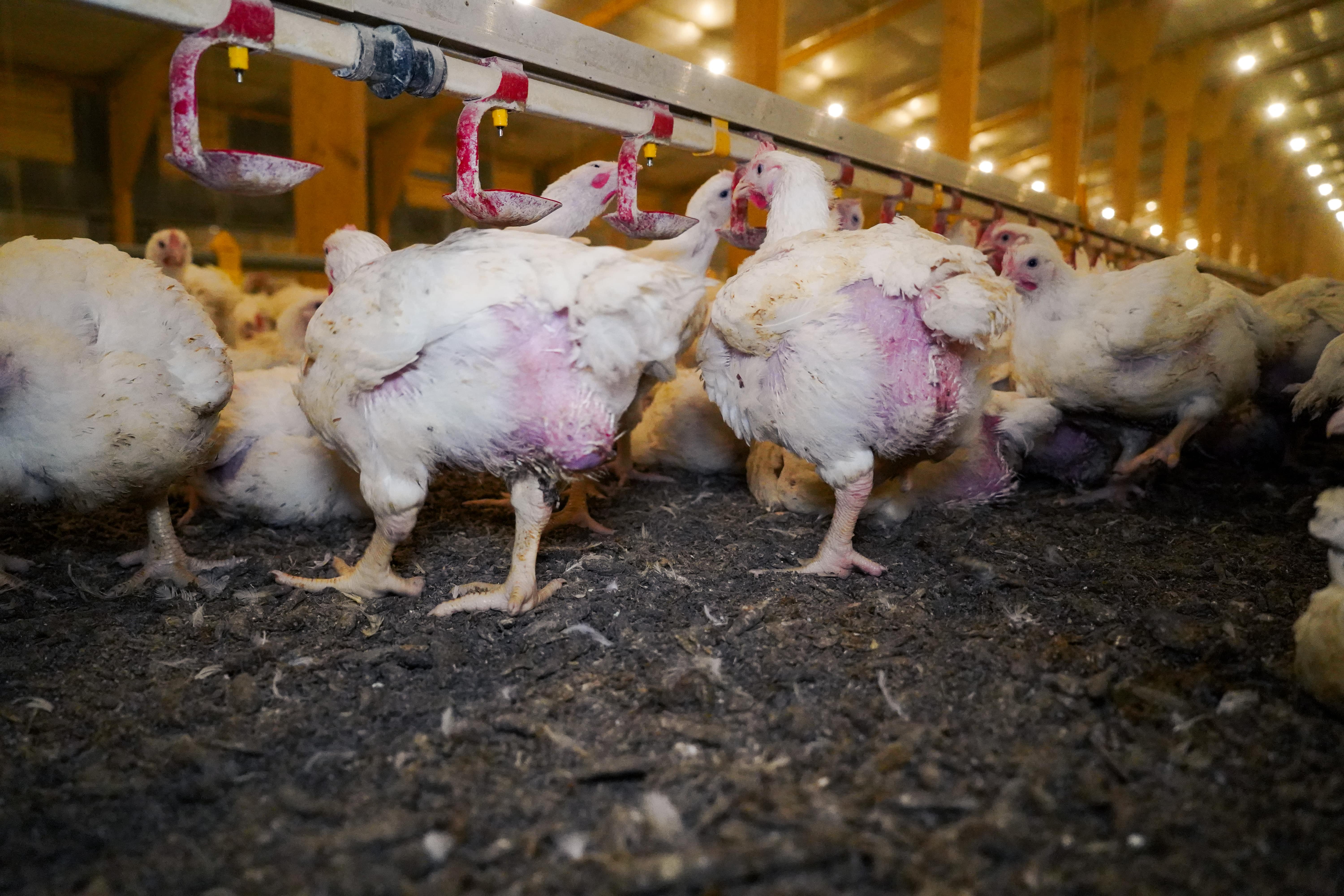
Factory farming: What is it and why it is a problem
Blog
A billion animals a year suffer unimaginable cruelty and pain on factory farms across the UK. And it’s legal.
What is factory farming?

Factory farming, also referred to as intensive animal farming, involves the concentrated and confined rearing of animals like pigs, cows, and chickens.
Factory farming resulting from the rapid growth in demand for cheap meat and dairy products means farm animals experience relentless suffering – trapped in cages, mutilated, and pumped full of antibiotics to stay alive.
These operations are industrial setups designed to raise substantial animal populations, predominantly indoors, with the aim of maximising output while minimising expenses.
A report in 2022 revealed that over 1,000 farms in the UK met the US definition of a concentrated animal feeding operation (CAFO), otherwise known as a mega-farm, housing most of our animals, especially pigs and chickens for meat.
Why must we be concerned?
Factory farming is the biggest threat animals face, inflicting terrible cruelty on billions of animals across the world.
It is also an existential threat to people and the planet: factory farms are a dangerous breeding ground for the next global pandemic, and drive environmental destruction, fuelling our climate crisis.
What is life like for an animal on a factory farm?

The conditions the animals are reared in are truly horrific. Sick and injured chickens sit squashed together. They often don’t have more space than an A4 sheet of paper and sit in their own waste, unable to flap their wings or stretch.
Mother pigs are forced into cages so tight that they are unable to turn to see their piglets or lay down comfortably. Piglets’ tails get cut off without anaesthetic.
Animals on factory farms live short, miserable lives in conditions that you wouldn’t think are legal in this country. It needs to stop.
What can you do to help?

A substantial reduction in animal protein consumption across the globe would free up land and other resources, making room for higher welfare, more sustainable production systems, that would benefit both the animals and humans. By avoiding cruelly produced cheap meat, consumers can support farmers who are doing the right thing and oppose intensive farming.

Buy less
Less demand for meat and dairy means less suffering for animal.

Choose wisely
Buy higher welfare when you can. It’s better for animals, you and the planet.

Ask questions
If you’re not sure where the meat at a restaurant or supermarket is from, ask the question.

Be vocal
No Future for Factory Farming
Spread the word about higher animal welfare and raise awareness of the global problem.
Be vocal